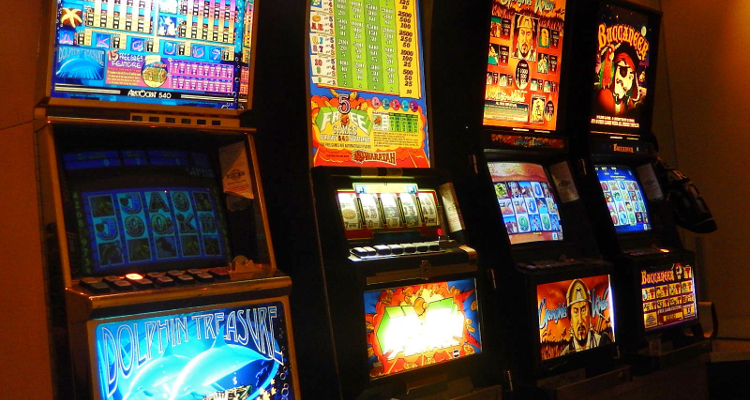In Australia, federal Senator and long-time gambling antagonist Nick Xenophon has reportedly announced that 2017 is set to be a “very unhappy year for the gambling industry” after he pledged to conduct an official inquiry into why gaming machine manufacturers seem unwilling to lower the maximum wager permitted on the nation’s “pokie” machines to AU$1.
According to a report from The Sydney Morning Herald newspaper, Xenophon also reportedly wants to include Woolworths Limited in the inquiry as the supermarket giant is the largest operator of “pokie” machines in Australia with some 12,000 units located in the over 300 hotels it runs via its Australian Leisure And Hospitality Group joint venture with the billionaire Mathieson family.
The South Australia Senator and leader of the Nick Xenophon Team political party reportedly joined with independent Australian House Of Representatives member Andrew Wilkie and Tim Costello from the Alliance For Gambling Reform earlier today to brand the “pokie” industry as “malevolent bastards” and “a pack of pariahs” that was similar to the National Rifle Association.
“On the political front, I’ll be pushing for a Senate inquiry to haul the “pokie” machine manufacturers and indeed Woolworths [Limited] to explain to the Senate, to the people of Australia, why they refused to be part of making these machines less addictive,” said Xenophon. “I’ll be seeking advice from senior counsel today in relation to whether there is any potential action under our competition laws in this country.”
The Sydney Morning Herald reported that a 2010 investigation from the Productivity Commission recommended lowering the maximum bet limit per spin for “pokie” machines from AU$10 to AU$1, which is about $0.72, but current legislation prevents anyone except manufacturers from altering how the slot-like units work.
The newspaper reported that local supermarket chain Coles Supermarkets, which is a subsidiary of Sydney-listed conglomerate Wesfarmers Limited, had earlier tried to introduce lower maximum bet limits on its 3,069 machines but was stopped by the nation’s five major manufacturers in Aristocrat Leisure Limited, International Game Technology, Konami Australia, Ainsworth Game Technology and SG Gaming.
“Through my [Nick Xenophon Team] state colleague in South Australia, John Darley, I’ll be looking at legislative amendments to the South Australian Gaming Machines Act to ensure that where an operator of machines wants to introduce features that are less addictive, less harmful, that lowers the rate of loss, then manufacturers should not stand in the way of that and, in fact, regulators should do everything possible to facilitate that,” said Xenophon.
The Sydney Morning Herald cited the Productivity Commission report as estimating that Australians feed more than $8.35 billion a year into “pokie” machines with about 40% of losses coming from problem gamblers.
Xenophon moreover reportedly declared that his inquiry would be designed to “get to the truth of this” and discover whether manufacturers “had discussions with other operators” such as Crown Resorts Limited, which operates the Crown Casino And Entertainment Complex in Melbourne.
In response, David Curry from Woolworths Limited reportedly told The Sydney Morning Herald that lowered maximum bet limits were not “evidenced-based” and would be unfair because such a ceiling does not currently exist on other gambling products such as wagering, keno and lotteries.
“We already have industry-leading voluntary pre-commitment installed on all our gaming machines in mainland Australia [and] we’re the only company to do so and if you look at the prevalence rates of problem gambling, they’ve more than halved over the past decade,” said Curry.
The Sydney Morning Herald estimated that Australian Leisure And Hospitality Group received at least 80% of its $2.98 billion in revenues for 2016 from “pokie” machines while lowering the current maximum bet limit from AU$10, which is approximately $7.26, could cost the industry up to $2.18 billion.
Ross Ferrar, Chief Executive Officer for the Gaming Technologies Association trade body, told Australia’s Special Broadcasting Service that changing the maximum get limit for “pokie” machines could require complex regulatory, technical and manufacturing input.
“It would likely entail significant time, cost and resources to build, test and deploy new equipment to the standards of integrity and performance required,” said Ferrar. “It is an indisputable fact that Australia has amongst the lowest maximum bets in the world for poker machines and that speed of play in Australia is amongst the slowest in the world. Our industry remains committed to progressing harm minimisation initiatives where they are shown to be effective.”



